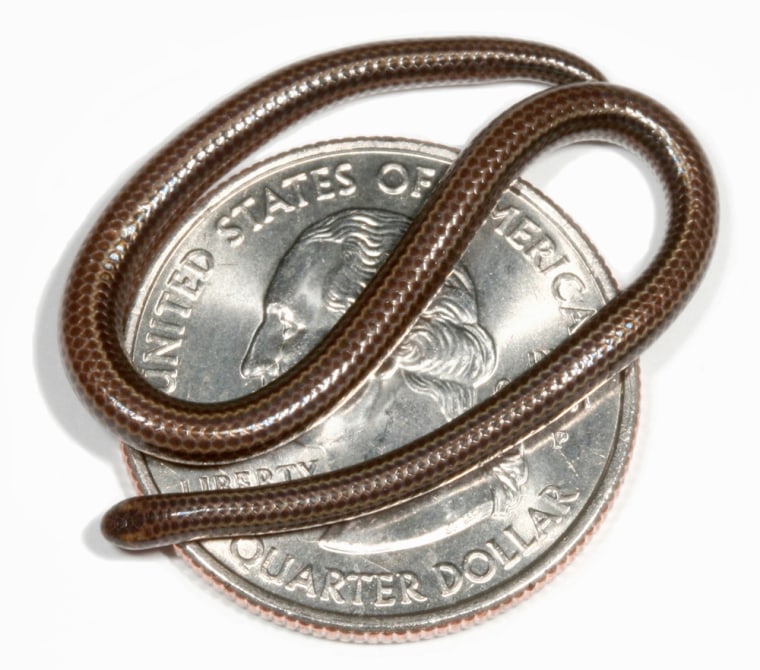Our world is a much wilder place than it looks.
A new study estimates that Earth has almost 8.8 million species, but we've only discovered about a quarter of them. And some of yet-to-be-seen ones could be in our own backyards, scientists say.
So far, only 1.9 million species have been found. Recent discoveries have been small and weird: a psychedelic frogfish, a lizard the size of a dime and even a blind hairy mini-lobster at the bottom of the ocean.
"We are really fairly ignorant of the complexity and colorfulness of this amazing planet," said the study's co-author, Boris Worm, a biology professor at Canada's Dalhousie University. "We need to expose more people to those wonders. It really makes you feel differently about this place we inhabit."
While some scientists and others may question why we need to know the number of species, others say it is important.
There are potential benefits from these undiscovered species, which need to be found before they disappear from the planet, said famed Harvard biologist Edward O. Wilson, who was not part of this study. Some of modern medicine comes from unusual plants and animals.
"We won't know the benefits to humanity (from these species), which potentially are enormous," the Pulitzer Prize-winning Wilson said. "If we're going to advance medical science, we need to know what's in the environment."
Biologists have long known that there's more to Earth than it seems, estimating the number of species to be somewhere between 3 million and 100 million. Figuring out how much is difficult.
Estimated number: Nearly 8.8 million
Worm and Camilo Mora of the University of Hawaii used complex mathematical models and the pace of discoveries of not only species, but of higher classifications such as family to come up with their estimate.
Their study, published Tuesday in the online journal PLoS Biology, a publication of the Public Library of Science, estimated the number of species at nearly 8.8 million.
Of those species, 6.5 million would be on land and 2.2 million in the ocean, which is a priority for the scientists doing the work since they are part of the Census of Marine Life, an international group of scientists trying to record all the life in the ocean.
The research estimates that animals rule with 7.8 million species, followed by fungi with 611,000 and plants with just shy of 300,000 species.
While some new species like the strange mini-lobster are in exotic places such as undersea vents, "many of these species that remain to be discovered can be found literally in our own backyards," Mora said.
Number could be low
Outside scientists, such as Wilson and preeminent conservation biologist Stuart Pimm of Duke University, praised the study, although some said even the 8.8 million number may be too low.
The study said it could be off by about 1.3 million species, with the number somewhere between 7.5 million and 10.1 million. But evolutionary biologist Blair Hedges of Penn State University said he thinks the study is not good enough to be even that exact and could be wrong by millions.
Hedges knows firsthand about small species.
He found the world's smallest lizard, a half-inch long Caribbean gecko, while crawling on his hands and knees among dead leaves in the Dominican Republic in 2001. And three years ago in Barbados, he found the world's shortest snake, the 4-inch Caribbean threadsnake that lays "a single, very long egg."
The study's authors point to other species as evidence of the growing rate of discovery: the 6-inch blind, hairy lobster-type species found in 2005 by a submarine looking at hydrothermal vents near where the Pacific meets Antarctica and a brilliant-colored frogfish found by divers in Indonesia in 2008.
Of the 1.9 million species found thus far, only about 1.2 million have been listed in the fledgling online Encyclopedia of Life, a massive international effort to chronicle every species that involves biologists, including Wilson.
If the 8.8 million estimate is correct, "those are brutal numbers," said Encyclopedia of Life executive director Erick Mata. "We could spend the next 400 or 500 years trying to document the species that actually inhabit our planet."
